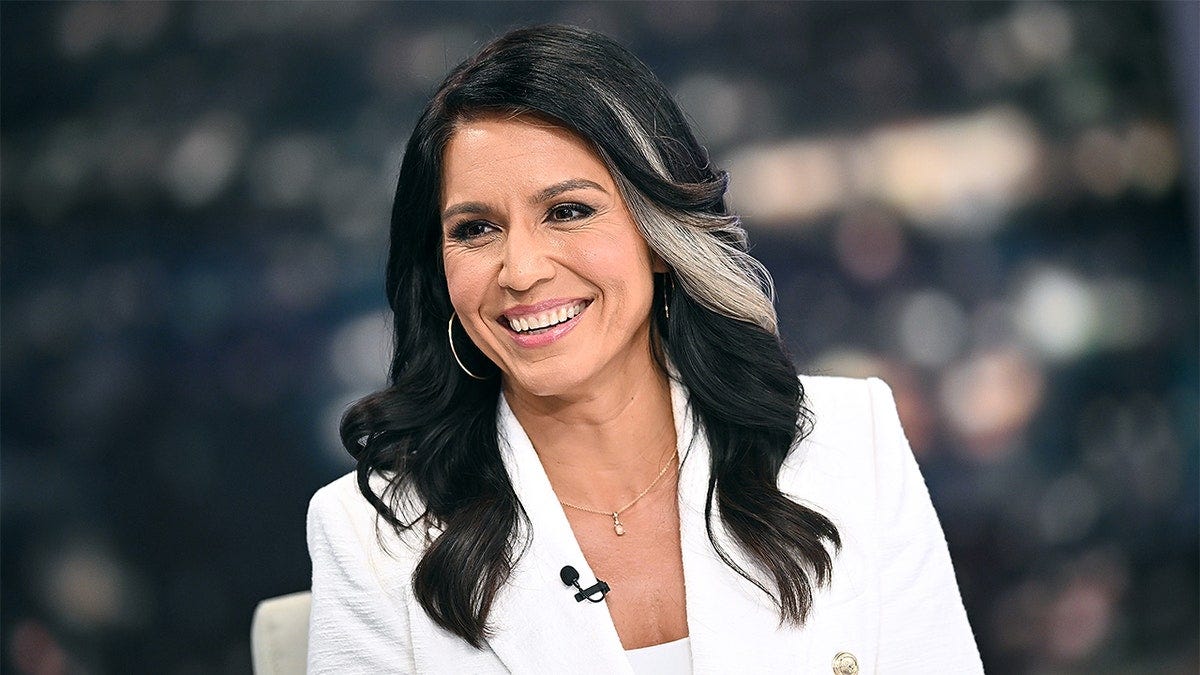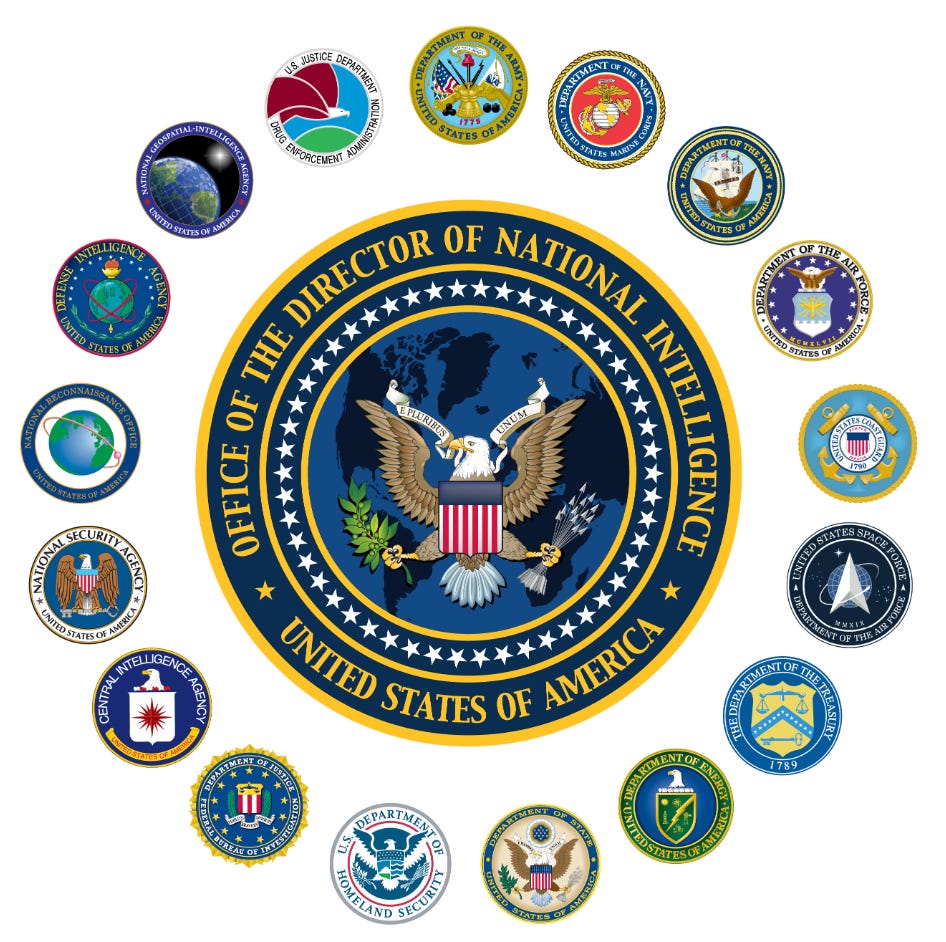Tulsi Gabbard as the Director of National Intelligence?
Why there is concern about Trump's pick to lead the American intelligence apparatus.
What is the Director of National Intelligence?
Established in 2004 in the aftermath of 9/11 as part of the Intelligence Reform and Terrorism Prevention Act, the Office of the Director of National Intelligence acts as the hub of 18 US intelligence agencies and organizations, including the CIA, NSA and DEA. It was created to streamline information and ensure the intelligence community was communicating amongst itself.
The Director of National Intelligence (DNI) is the nominal the head of US intelligence and serves as the primary conduit between the intelligence community and the President of the United States. The DNI manages the President’s daily intelligence briefing and, as one former intelligence official put it, supposed to “define the world as it is, as opposed to advocating for a world as you want it to be.”
The current DNI is Avril Haines, the first woman to perform this role. Prior to DNI, Haines worked across the US national security and intelligence apparatus, serving as Deputy National Security Advisor for Obama from 2015-17 and as Deputy Director of the CIA from 2013-15.1
The breadth of information controlled by the DNI cannot be underestimated. Abigail Spanberger (D-Virginia), a former CIA officer currently on the House Intelligence Committee noted, “the DNI has access to every single secret that the United States has, every single bit of information that we know…It’s the keys to the intelligence community kingdom.”
With these responsibilities, it is essential the DNI is a clear-eyed advocate for the best interests of the United States, able to deliver unbiased and unvarnished intelligence to the President.
This time around, Trump has nominated Tulsi Gabbard as his DNI.
Who is Tulsi Gabbard?

Tulsi Gabbard is a veteran who has served in the Hawaii National Guard and Army Reserves and was deployed in Iraq and Kuwait. These foreign tours of duty were formative for Gabbard and helped shape her anti-interventionist foreign policy.
After returning from the Middle East, Gabbard became the first American Samoan and Hindu member of Congress and served four terms as a Democrat from Hawaii (through 2020). She used this platform to decry US military intervention abroad, arguing that America’s actions have destabilized the Middle East and made the US less safe. She supported Bernie Sanders in 2016, largely on the back of his opposition to foreign entanglements.
Gabbard subsequently ran for the Democratic nomination in 2019/20 before ultimately dropping out and endorsing Biden. At the time, Gabbard was a vocal Trump critic, in particular after he ordered the drone strike killing the Iranian general Qassem Soleimani in early 2020. She told CNN that, based on a Congressional intelligence briefing, there was “no justification whatsoever for this illegal and unconstitutional act of war that President Trump took.”
She also called out Trump in 2018 after he backed Saudi Arabia and Crown Prince Mohammed bin Salman following the murder to Jamal Khashoggi.

Despite this, she was the only member of Congress to vote ‘present’ during the first Trump impeachment in 2019. At the time she wrote,
I could not in good conscience vote against impeachment because I believe President Trump is guilty of wrongdoing. I also could not in good conscience vote for impeachment because removal of a sitting President must not be the culmination of a partisan process, fueled by tribal animosities that have so gravely divided our country.
She left the Democratic Party in October 2022, citing the party as home to an ‘elitist cabal of warmongers’ and stumped for Republican midterm candidates. She became a fixture on Fox News and started a podcast/YouTube show. Earlier this year, she backed Trump, highlighting his “courage” to meet with all comers, friend or foe, “in the pursuit of peace, seeing war as a last resort”
What makes her a controversial choice for DNI?
In and of itself, nothing in her biographical history is disqualifying (beyond having no formal intelligence background, nor sitting on any of the House intelligence committees or any major managerial experience). You may disagree with her blanket isolationism or have trouble reconciling how her support could go Bernie, Biden and Trump, but politicians switch positions all the time. You can’t really hold that against her.
The being said, what is concerning are some of the views she has espoused on certain foreign policy matters, specifically related to Syria and Russia.
Keep reading with a 7-day free trial
Subscribe to Nuance Matters to keep reading this post and get 7 days of free access to the full post archives.




